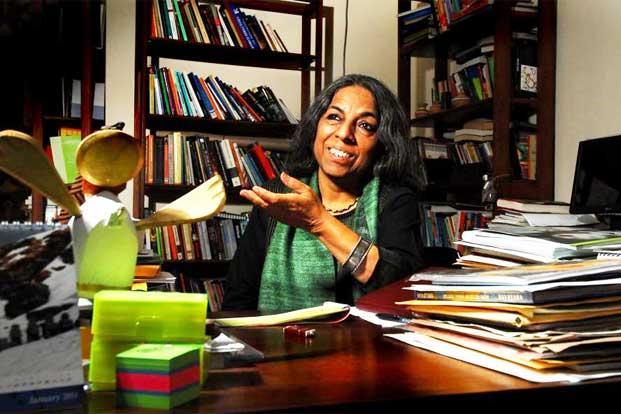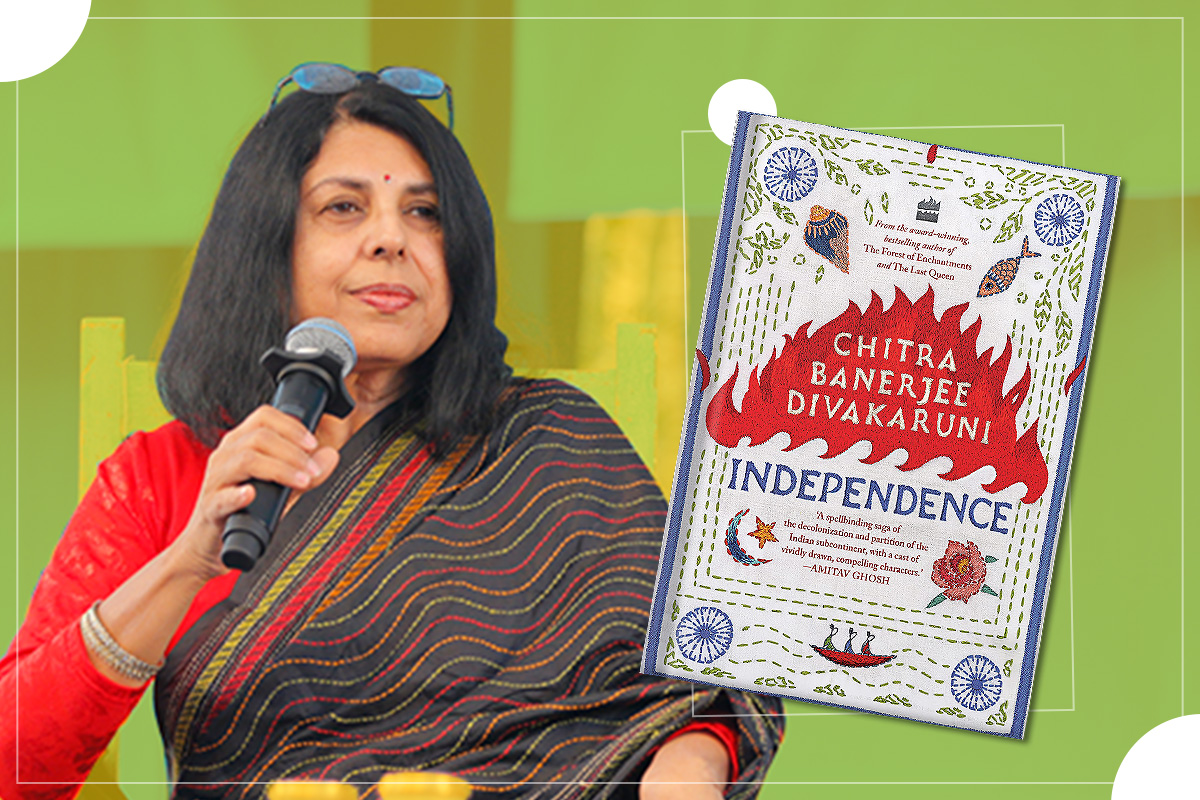Urvashi Butalia is a publisher and writer and co-founder of Kali for Women. She is India’s first feminist publisher and now director of Zubaan Books. She is also author of the award-winning oral history of Partition The Other Side of Silence: Voices from the Partition of India.
Partition of India by and large revolves around ‘political’ negotiations and the major players of the history: Gandhi, Nehru, Patel, Jinnah, Liaqat Ali Khan, and Mountbatten. But Urvashi Butalia focuses on the stories of the smaller, often invisible players: ordinary people, women, children. Butalia principally do this through interviews and oral narratives to revive these hidden voices.
Also read: Manto’s Mirror To Partition: A Feminist Review Of ‘Khol Do’
Butalia’s main areas of interest are partition and oral histories from a feminist and left-wing perspective. She has written on gender, communalism, fundamentalism, and media. She has written for The Guardian, the New Internationalist, The Statesman, The Times of India, Outlook and India Today. Urvashi has authored and co-authored about seven books.
Early Life
Urvashi Butalia was born in Ambala, Haryana, into a very rich, progressive and atheist family of Punjabi heritage. Her mother, Subhadra Butalia, was a feminist who ran a counselling centre for women. Butalia earned a BA in literature from Miranda House, Delhi University, in 1971, a master’s degree in literature from Delhi University in 1973, and a master’s in South Asian Studies from the University of London in 1977.
Butalia started her career working with Oxford University Press in Delhi. She later worked for a year at their Oxford headquarters, before moving briefly to London-based Zed books as an editor in 1982. She then returned to India and, along with Ritu Menon, set up a feminist publishing house, Kali for Women, in 1984.
What Compels Butalia To Write About Partition And Women
The political partition of India caused one of the greatest human convulsions in history. Never before or since have had so many people exchanged their homes and countries in such a short span of time. This is the side of the partition that exists majorly in history books. But the women perspective of partition is harder to discover – it exists in the private realm, in the stories told and retold inside so many households in India and Pakistan.
Butalia was born in the family of Partition refugees like many other Punjabi families of her generation. She heard memories of partition, the horror and brutality of the time by her mother who came from Lahore. Her mother told her about the dangerous journeys she twice made back there to bring her brothers and sisters to India. But for Butalia these were mere the stories of loot, arson, rape and murder till 1984.
Butalia was among those who worked for food, relief and shelter for these victims. Every day, she noticed dead, missing and people with extreme sufferings.
In October 1984, the Prime Minister, Indira Gandhi was assassinated by her security guards, both Sikhs. For days afterwards Sikhs all over India were attacked in an orgy of violence and revenge. Many homes were destroyed and thousands were killed, often by being doused in kerosene and then set alight. Butalia was among those hundreds of people who worked for the food, relief and shelter of these victims. Every day, she noticed dead, missing and people with extreme sufferings. People were seen shouting “This is like Partition again”.
This was the time when Butalia realised that the pain of partition and the stories of Partition no longer seemed quite so remote: people of the same village, same town, could still be divided by the politics of their religious, differences and once divided could do terrible things to each other. This brutal incident compels her to collect the stories from the survivors of the Partition. She was curious to know what women did to save themselves from rapes and other brutalities. Some stories were horrific and were hard to believe. All this led to beginning of her journey towards the oral history of partition and women.
The Other Side Of Silence: Voices From The Partition of India
In her book The Other Side of Silence, Urvashi Butalia fills this gap by placing people – their individual experiences, their private pain – at the center of this epochal event.
Through interviews conducted over a ten-year period and an examination of diaries, letters, memoirs, and parliamentary documents, Butalia asks how people on the margins of history – children, women, ordinary people, the lower castes, the untouchables – have been affected by this upheaval.
To understand how and why certain events become shrouded in silence, she traces facets of her own poignant and partition-scarred family history before investigating the stories of other people and their experiences of the effects of this violent disruption. Those whom she interviews reveal that, at least in private, the voices of partition have not been stilled and the bitterness remains.
Throughout, Butalia reflects on difficult questions. What did community, caste, and gender have to do with the violence that accompanied partition? What was partition meant to achieve and what did it actually achieve? How, through unspeakable horrors, did the survivors go on? Believing that only by remembering and telling their stories can those affected begin the process of healing and forgetting, Butalia presents a sensitive and moving account of her quest to hear the painful truth behind the silence. She has many other remarkable works also but this book is considered as a master piece.
Legacy and achievements: Kali for Women and Zubaan
In April 1984 Urvashi Butalia and Ritu Menon met and Kali for Women with a sense of urgency about bringing women’s voices into the male-dominated world of Indian literature was born.
Throughout, Butalia reflects on difficult questions. What did community, caste, and gender have to do with the violence that accompanied partition?
Zubaan Books is a leading independent publishing house based in New Delhi with a strong academic and general list. It was set up in 2003 as an imprint of India’s first feminist publishing house, Kali for Women, and continues to publish books on, for, by and about women in South Asia. They work on behalf of all those whose voices are silenced or marginalised by the mainstream but will continue to be heard no matter others say.
Literary Achievements
In 2011, her literary achievements got a greater recognition when Butalia and Menon were jointly conferred the Padma Shri, India’s fourth highest civilian award, by the Government of India. Butalia’s work is remarkable when it comes to the women and marginalisation. She revealed the hidden aspects of partition.
Also read: The Partition Of Punjab: A Tale Of Violation Of Women’s Rights
Her Contribution To The Partition History
The mainstream history of Partition is only concerned with politics and few socio-economic events between the newly created Indo-Pak government and British. The history of ordinary masses, women, Dalits remained silent until Butalia started working particularly for the cause of women. It gave new narratives to the partition towards the loss, displacement, honour, suffering and pain. After taking around 70 interviews she wrote about the plight of women during partition. Her work is a major contribution to the women and partition as she revived unsaid through oral history.
Featured Image Source: Live Mint
About the author(s)
Areeba Sundus is a History student from Jamia Millia Islamia with her specialisation in Modern Indian History. Feminism is a crucial part of her identity and she wants to become a voice of the voiceless.




